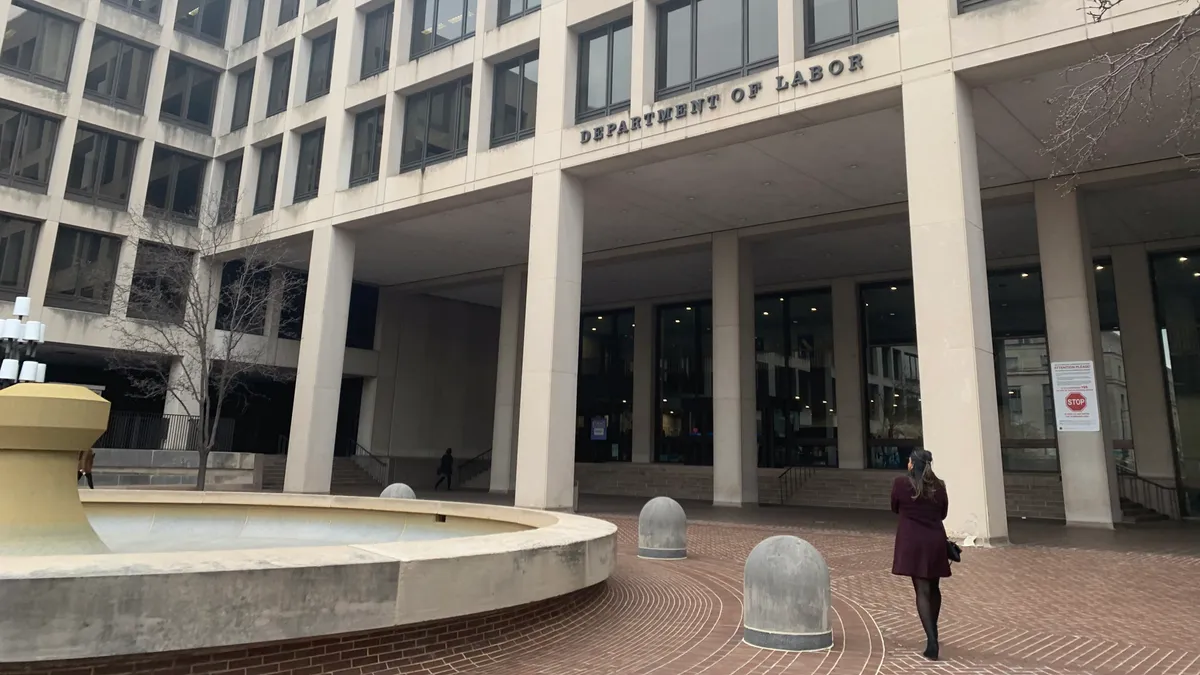Dive Brief:
- The 5th U.S. Circuit Court of Appeals on Wednesday upheld the U.S. Department of Labor’s use of a salary basis test to determine overtime pay eligibility under the Fair Labor Standards Act.
- The three-judge panel in Mayfield v. U.S. Department of Labor held that the FLSA allows DOL to define and delimit when an employee is employed in a bona fide executive, administrative and professional capacity. The salary basis test “sets a limit on what is otherwise defined by the text of the [exemption]” and is therefore within the scope of DOL’s authority, the 5th Circuit said.
- At the same time, “DOL cannot enact rules that replace or swallow the meaning” of the terms “define” and “delimit,” the court said. It noted that the use of a particular minimum salary rule level “could raise issues because of its size” under the major questions doctrine, but that distinctions based on salary level are “consistent with the FLSA’s broader structure, which sets out a series of salary protections for workers that common sense indicates are unnecessary for highly paid employees.”
Dive Insight:
The 5th’s Circuit decision provides insight into one of the most significant labor and employment law questions to emerge following the U.S. Supreme Court’s overturning of Chevron deference in Loper Bright Enterprises v. Raimondo. It was Loper Bright’s holding that prompted the 5th Circuit to solicit briefing in Mayfield on what effect the end of Chevron deference had on a lower court’s decision to uphold use of the salary basis test.
During oral arguments, counsel for the Mayfield plaintiffs argued that, under Loper Bright, courts should hold that the FLSA’s executive, administrative and professional exemption provides no basis for the consideration of salary and instead only permits DOL to consider an employee’s job duties. Members of the three-judge panel were skeptical of this reasoning, however, a sentiment reflected in the court’s unanimous decision Wednesday.
“We are not persuaded,” the 5th Circuit wrote. “Using salary as a proxy for EAP status is a permissible choice because, as we have explained, the link between the job duties identified and salary is strong.”
The court’s approach was similar to that used in another recent decision in which it struck down a separate DOL final rule on the FLSA’s tip credit regulations, according to Paul DeCamp, member of the firm at Epstein Becker Green and former administrator of DOL’s Wage and Hour Division. In both cases, DeCamp said, the 5th Circuit focused on the meaning of the FLSA’s statute and used that analysis to determine whether Congress delegated authority to DOL.
Though this resulted in the court ultimately concluding that DOL did have the authority to consider salary, DeCamp said that the 5th Circuit appeared to acknowledge that the Supreme Court could decide the question differently. He added that he expects an appeal of Mayfield.
“I don’t know whether [the plaintiffs] will succeed, but I don’t know that this is the last word on this issue,” DeCamp said.
The 5th Circuit also weighed in on whether the salary basis test implicates the major questions doctrine, under which courts may reject claims of agency authority that concern issues of vast economic or political significance. It concluded that DOL’s 2019 Trump-era overtime rule did not meet either threshold, but the 5th Circuit also noted that there is uncertainty as to the doctrine’s precise use in judicial analysis.
“What we’re looking at is the court struggling to apply that relatively new doctrine,” DeCamp said.
Despite the Mayfield decision, DOL still faces potential legal roadblocks toward implementation of its most recent overtime final rule. A Texas district court has already blocked that rule from taking effect for the state government’s employees.
DeCamp said he advises employers to prepare for federal regulations as if they will take effect, even if a successful court challenge is possible. “If it happens it happens, but employers should always do their best to be prepared,” he added. “As an employer, you don’t want to be caught flat-footed.”













